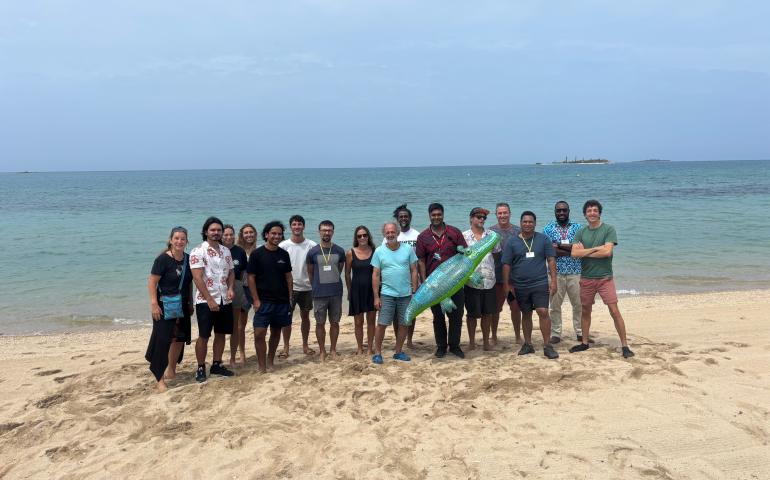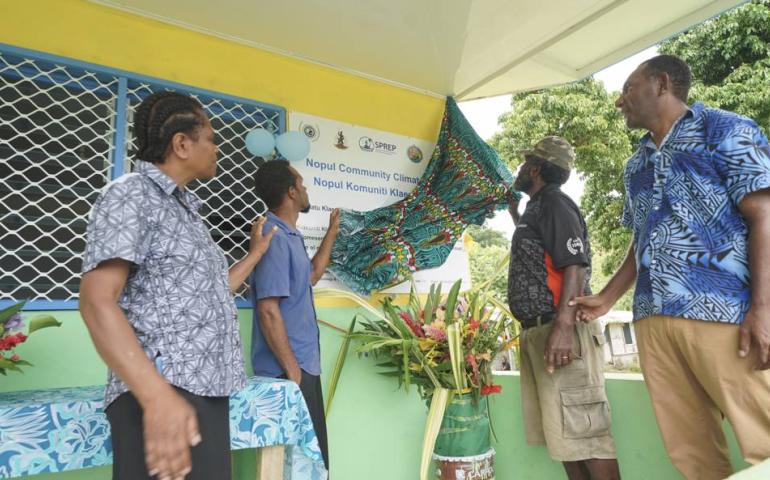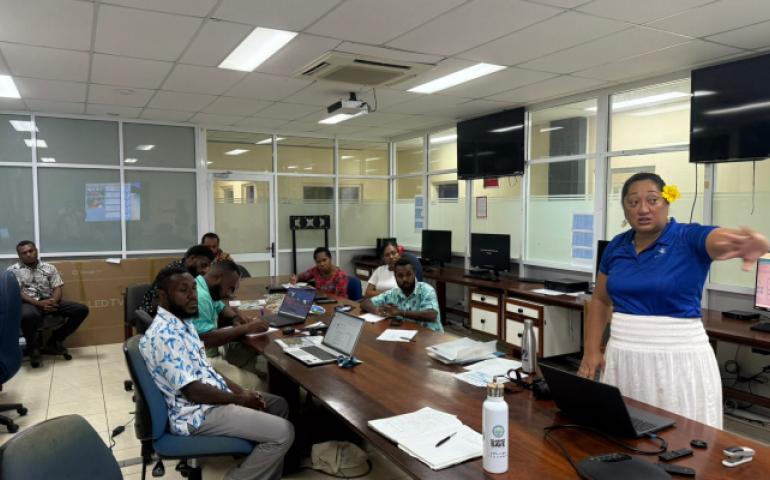Regional trust fund on meteorology proposed
By Pita Ligaiula of Pacific Island News Association (PINA)
18 August, 2017, Honiara, Solomon Islands, PMC-4 –Solomon Islands Deputy Prime Minister Manasseh Maelanga has suggested a Pacific ‘self-sustaining trust fund’ to support the work of National Meteorology and Hydrology Services (NMHSs) in the region.
Maelanga made the statement today while opening the Second Pacific Ministerial Ministers Meeting (PMMM-2) on Meteorology, in Honiara.
“These are only suggestions that I think will assist our governments in their quest to ensure that sustainable weather, climate, ocean and water services are provided to build the resilience of the Pacific region.”
He said the minister meeting needed to discuss and agree on decisive actions that the NMHSs and disaster management offices have to undertake to ensure better, new, improved and innovative services are rendered to the people of the Pacific region.
“On the issue of ‘cost recovery,’ I urge all of you to think carefully and innovatively on how NMHSs can recover costs of the services it provides. What other services or products can be provided on a commercial basis?
“On ocean observation, we are all surrounded by the ocean but this region has made limited investments in ocean observation. We need to do this not only for weather and climate purposes, but also to improve our understanding of the overall health of our ocean and resources in it.
He said globally, majority of the natural disasters are hydro-meteorological in nature.
“In the Pacific region, a lot of natural disasters that we had experienced are also related to water and climate. Because of our isolation, limited capacity and the vast ocean we are situated in, we are indeed very vulnerable to the impacts of climate change and climate variability including weather extremes.
“The incidences that I mentioned calls for the attention of our respective NMHSs as well as the disaster management offices to ensure new, vital and improved services are provided to our governments, our people and our communities. They need to understand the nature of these threats and make informed decisions to avoid or reduce their impacts.
“With our increasing population, proliferation of information technology coupled with the geographic spread of our islands, the demand for timely and accurate meteorological and hydrological information also increases. Nevertheless, I believe with the goodwill support we have received from our development partners and other collaborating organisations, new and improved services will be established.
World Meteorological Organisation (WMO) Director General Petteri Taalas Secretary-General said NMHSs can contribute to sustainable development and disaster risk reductions.
“Strengthening the capacities of the Pacific National Meteorological Services remains a major priority including modernising their infrastructure, equipping them with staff with highest technical skills, providing them with sufficient resources, raising their political visibility.
“The contribution of the international community to the sustainable development of the Pacific countries through the improvement of Met Services is being increasingly recognised, and it must be paired by the necessary support and investments at the national level,” Taalas said.
The WMO head also re-emphasised that the Pacific National Meteorological Services are critical actors in supporting the sustainable development of their countries.
“There is increasing awareness among policymakers and the general public of the socioeconomic benefits delivered by weather and climate services.
“Through this and future meetings, the Ministers responsible for meteorology in the Pacific, together with SPREP and WMO, have a major role in raising the visibility of the Pacific National Meteorological Services in the national and regional development agendas,” said Taalas. – #PMC4 #PacificMet
The Fourth Pacific Meteorological Council is being held in Honiara, Solomon Islands from the 14 – 17 August co-hosted by the government of Solomon Islands, the Secretariat of the Pacific Regional Environment Programme (SPREP) and World Meteorological Organization (WMO). This will followed by the Second Pacific Meteorological Ministers Meeting (PMMM) on the 18 of August.
The PMC and PMMM is supported by the Government of Solomon Islands, SPREP, WMO, Government of Australia through the Climate and Oceans Support Programme (COSPPac) and Pacific Australia Climate Change Science and Adaptation Planning Programme (PACCSAP), Government of Finland, National Ocean and Atmospheric Administration (NOAA), United Nations Development Programme through the Resilience in the Pacific (SIDS) project.
The PMC consists of members of the Pacific National Meteorological and Hydrological Services supported by its technical partners, regional organisations, non-government organisations and private sectors.
This article was developed by a Pacific Media Team of Reporters currently providing coverage on the Fourth Pacific Meteorological Council in Solomon Islands. This activity coordinated by SPREP is supported by a partnership between the Government of Solomon Islands, SPREP, Australia funded project (Climate and Oceans Support Program (COSPPac) and UNDP Disaster for Pacific SIDS (RESPAC) project.
The views and opinions expressed in this article are those of the writer and do not necessarily reflect the views of the Secretariat of the Pacific Regional Environment Programme (SPREP) or the United Nations Development Programme (UNDP)both of which provided funding for generating media articles.
- Log in to post comments




